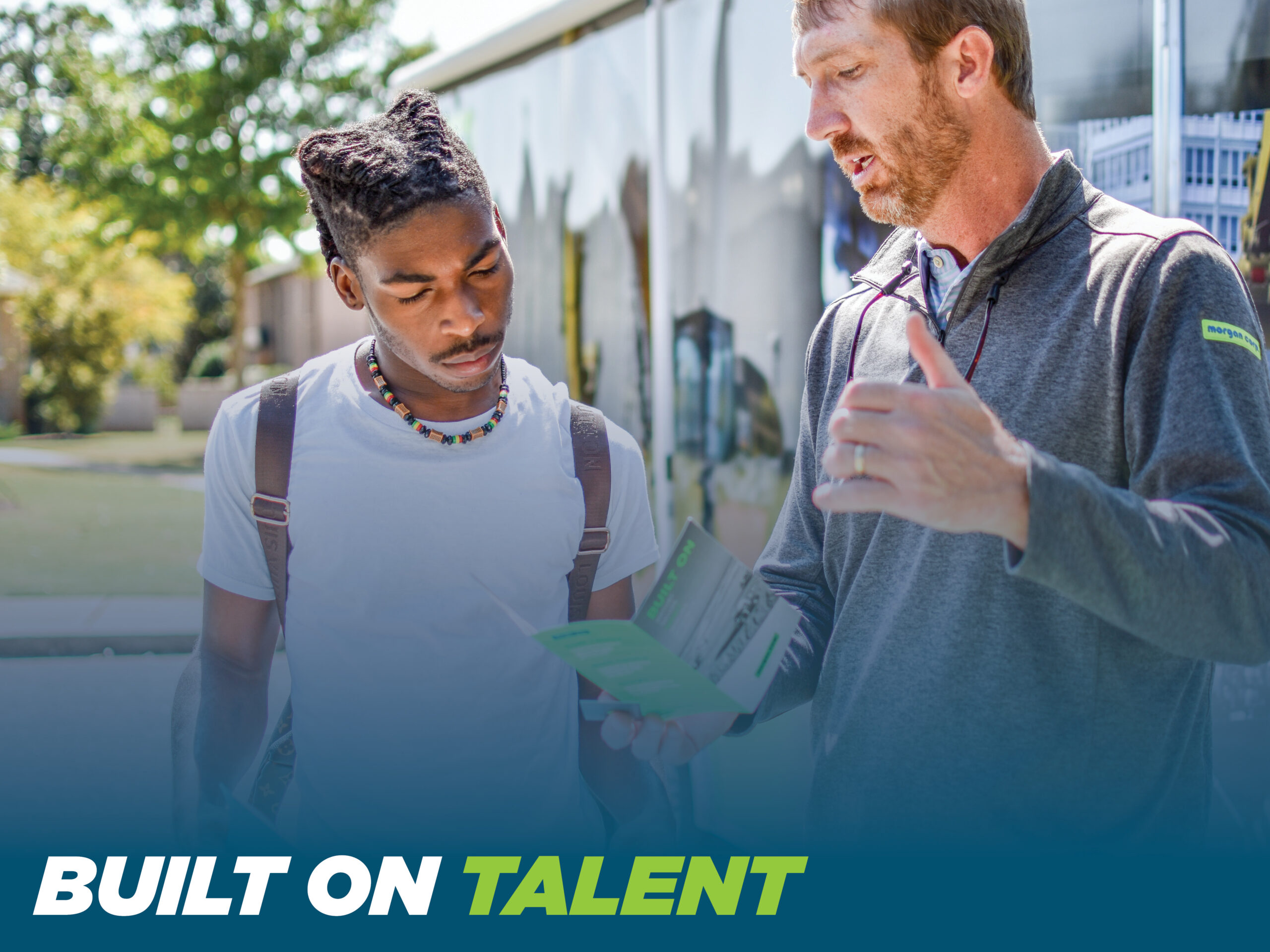Built On Talent: Tips and Tricks from Our Recruiting Team

At Morgan Corp., we aim to staff our field, supervision, and administrative teams with the most capable and dedicated candidates on the market. With help from our Recruiting team, we’ve compiled a list of best practices for finding the right role for your skillset.
Searching the Smart Way: Online postings, voicemails left unanswered, and job fairs teeming with QR codes to apply can make the job market can feel less relationship-centric than ever. When looking for a job that fits your goals, try to look at any personal connections you may have in your desired industry. An old teacher, neighbor, or coach may have the tools to point you in the right direction.
Looking at the career trajectory of someone you admire can give you an example of work-life balance in that role, along with an opportunity for continued mentorship.
Online Presence: Professional and Personal
As applications go more virtual, so does the vetting process for candidates. Be mindful of what you are posting both personally and professionally, viewing everything through the lens of a company that may be looking to get to know you better.
The best way to keep your online presence a non-issue is to adjust the settings on your profile to “private”.
Resumes and Cover Letters:
Resumes and cover letters are often the first impressions a recruiter has of your skills in the application process. If your future role focuses on relationships, consider including 2-3 references of those who have worked closely with or have managed you. This will allow a more nuanced insight into you as a potential employee and company ambassador.
Keeping your work history relevant, concise, and neatly organized will showcase your ability to put your career path in perspective.
Online Interviews
Online interviews can feel even more awkward than the real-life version! Between the cords and screens, a million things are taking away from what’s meant to be a formal, more polished experience. Do your best to minimize distractions with a calm, clean, and organized space around you.
Close doors, mute devices, and pay special attention to what is visible to the person interviewing you in the background.
Attire
For in-person interviews, make a point to ask your recruiter/interviewer about any attire expectations for your interview. Even if you are seeking a job that would have you outside and in more casual clothes in the day-to-day (like construction!), interviews typically happen in an office setting and require a business casual or professional look.
Follow-ups and Thank Yous
The best way to ensure good communication after an interview is to confirm the next point of contact before you leave. Whether you have an offer to consider, a simple email exchange, or another round of interviews- keep the ball moving with a set time and place for the next conversation.
Whenever possible, be sure to thank those who are working with you for their time and consideration. They could be your future teammates or managers!
Leaving On a Good Note:
If you’re moving from one job to the next, be considerate in your final weeks. Do your best to give ample notice for the company to begin its search and try to prepare for the next person to fill your role.
It never hurts to keep a connection or two for any future reference needs.
